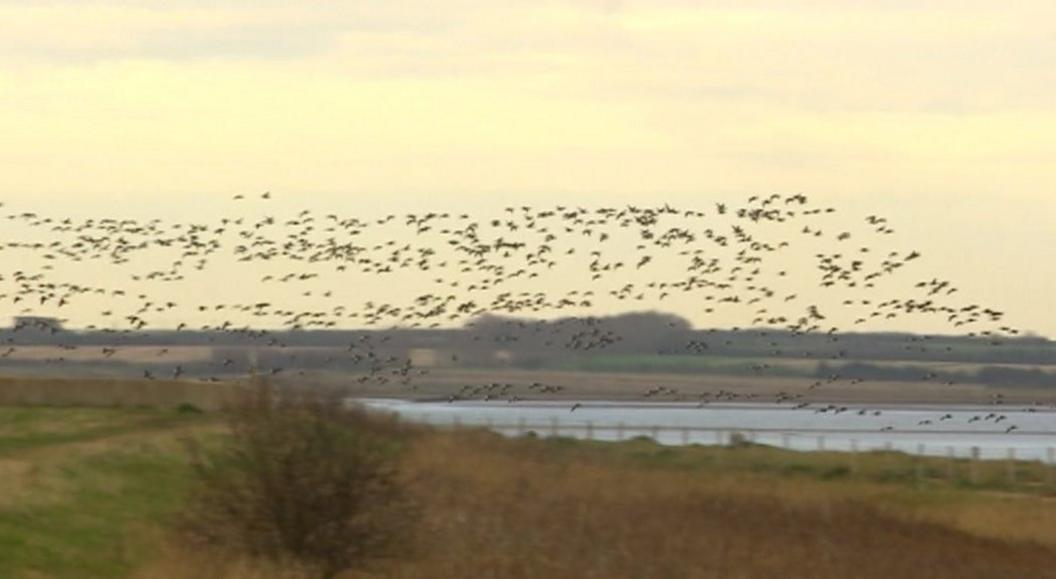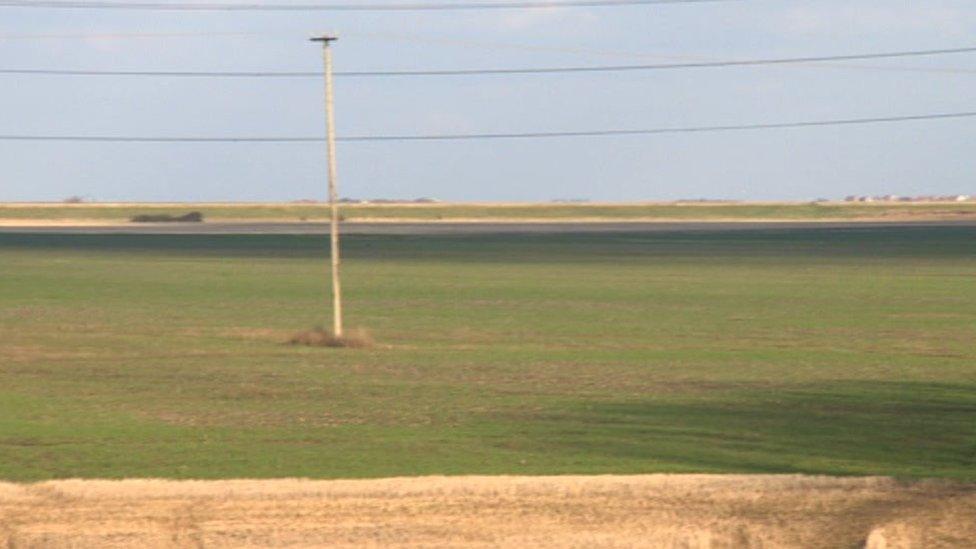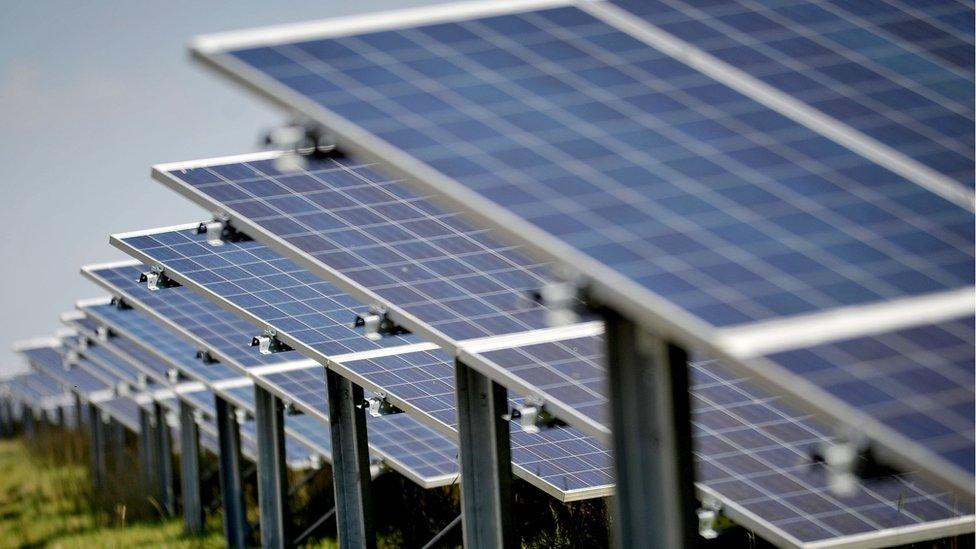'Vast' Graveney solar farm plans one step closer
- Published

Campaigners says wildlife in the area will be affected by the solar farm
A proposed solar farm with 800,000 panels is to be considered by the government.
The Cleve Hill Solar Park would be built on 890 acres (360 hectares) of farmland at Graveney in north Kent.
Kent Wildlife Trust has objected to the plans, saying the development threatens wildlife, including marsh harriers.
The developers said the solar farm would provide "clean electricity" to more than 91,000 homes, with an area set aside to protect wildlife.
The company, formed by industry specialists Hive Energy and Wirsol Energy, said it would be the largest such farm in the UK and would not receive any government funding.
The solar park has pledged to create an area of 138 acres (56 hectares) for bird species including lapwing, Brent goose, golden plover and marsh harrier.
The secretary of state for housing, communities and local government will now look at the planning application.
'Absolutely vast'
Wendy Pryke, whose home looks over the proposed site, said: "It will turn it into an industrial landscape. There will be a total loss of habitat for all the wildlife out there."
Richard Knox-Johnston, from the Campaign to Protect Rural England, said the landscape would be "destroyed".
"If you look at it from any angle it is absolutely vast and looks like a massive warehouse covering more than 600 football pitches."

Wendy Pryke says the view from her home will be turned into "an industrial landscape"
Kent Wildlife Trust said while being in favour of renewable energy, the effects of such a large solar farm on wildlife were not "fully understood".
Taking part in an earlier public consultation, the trust said: "Overwintering birds, particularly those associated with the Swale Special Protection Area (SPA), are a key issue with regard to the impacts of the proposals.
"It is essential that the proposals are able to demonstrate that there will not be an adverse impact."
- Published9 November 2017
